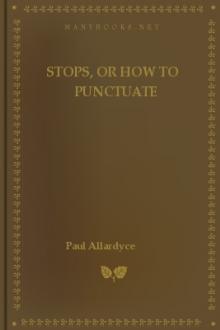Stops, Or How to Punctuate
Book Excerpt
Be his motives what they may, he must soon disperse his followers.
This relation of your army to the crown will, if I am not greatly mistaken, become a serious dilemma in your politics.
Of course, this rule must be qualified by the rules for the stronger points, especially by those for the semicolon and the colon. It is often necessary to separate the clause from the rest of the sentence by a strong point.
EXCEPTIONS.--(I) No point is needed if either the dependent clause or the principal clause be short.
He would be shocked if he were to know the truth.
But if the dependent clause be inserted parenthetically, it is marked off by commas or the other marks of parenthesis, however short it may be. (See Rule X.)
If the sentence last quoted were inverted, a comma would be placed after the dependent clause.
If he were to know the truth, he would be shocked.

 Free Download
Free Download



















-itok=vcKIB5v1.jpg)